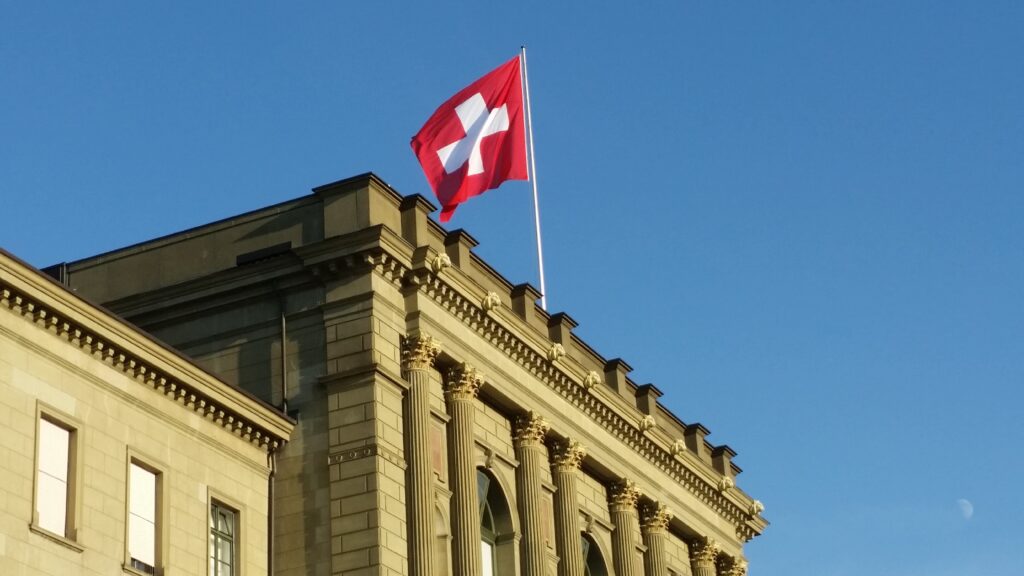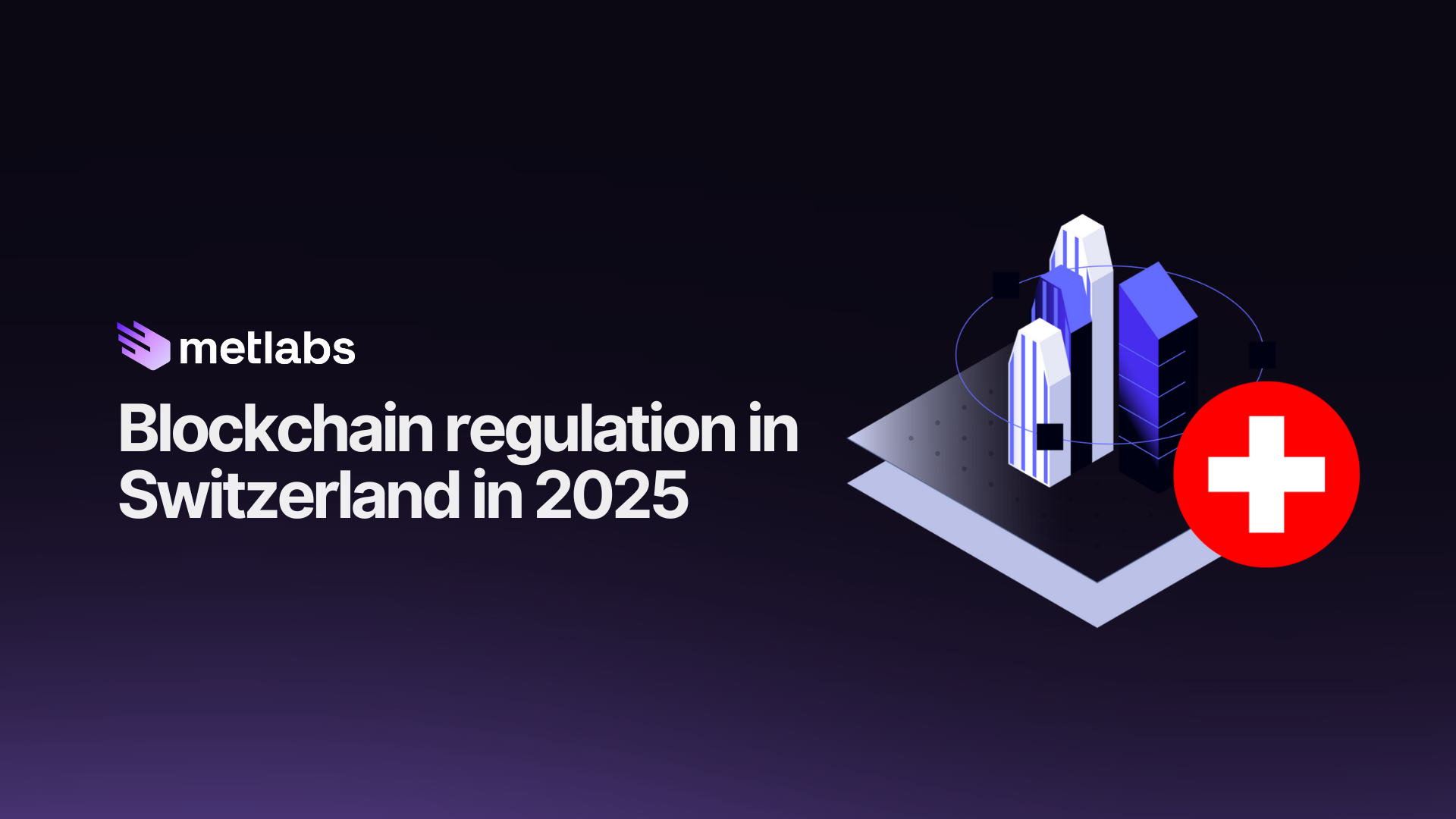The adoption of blockchain technology and asset tokenization is advancing at a rapid pace, but the real engine driving its global development is the existence of a clear, consistent and innovation-friendly legal framework.
Some countries have already established themselves as regulatory benchmarks, establishing specific rules for cryptoassets, DLT infrastructures and token issuance with legal backing. In this article we show you information relevant to blockchain regulation in Switzerland, which you can use as a guide if you are looking to operate internationally or evaluate different strategic locations.

Current legislation on blockchain and virtual assets in Switzerland.
DLT Act
The DLT Act modernized the Code of Obligations, allowing the issuance of tokenized securities with full legal recognition. It clearly defines ownership rights over tokens and sets standards for authorized DLT platforms. It ensures transparency, investor protection and legal certainty in the transfer of digital assets.
FinSA and FinIA (Financial Services Act and Financial Institutions Act)
Both laws regulate the provision of financial services, including those related to cryptoassets, establishing transparency, governance and user protection requirements. They apply the same regulation to both traditional players and blockchain-based projects, ensuring equal and secure treatment for all market participants.
Financial Market Infrastructure Act (FMIA)
The FMIA regulates securities markets, payment systems and securities trading platforms in Switzerland. Its scope has been extended to include blockchain-based infrastructures. Thus, secondary markets that allow the trading of tokenized securities are subject to the FMIA, ensuring high standards of transparency and security.
FINMA regulatory sandbox on cryptoassets
FINMA’s regulatory sandbox allows blockchain and fintech startups and emerging companies to operate with partial regulatory exemptions and under limited supervision, facilitating the experimentation of new business models in a controlled environment. This framework is especially designed to foster innovation in areas such as DeFi (decentralized finance), asset tokenization and digital financial services.
Tokenization makes it possible to digitally represent real-world assets via blockchain, but for it to have legal value, a regulatory framework recognizing this operation is essential. Switzerland adopts its own approach, establishing specific rules for the issuance, custody or trading of tokens. In this block we explain how asset tokenization is regulated from a legal point of view, taking an advanced jurisdiction such as Switzerland as an example.
Regulation of asset tokenization in Switzerland
Asset tokenization in Switzerland is recognized and supported by a clear legal framework, mainly thanks to the DLT Act, which legally equates blockchain technology (DLT) registries with traditional private law registries. This allows tokenization of a wide variety of assets, including stocks, bonds, fund shares, real estate, commodities, etc.
The applicable regulation varies depending on the legal nature of the token. In the case of security tokens, the Financial Market Infrastructure Act (FMIA), the Financial Services Act (FinSA) and the Financial Institutions Act (FinIA) apply, under the supervision of FINMA, which determines licensing, KYC/AML and compliance requirements for activities such as issuance, custody or trading.
The Swiss legal framework also allows the creation of authorized DLT Trading Facilities (DLT Trading Facilities), providing a regulated environment for secondary trading of tokenized assets, which contributes to increasing their liquidity and attractiveness in the markets.
Switzerland has established itself as one of the most favorable jurisdictions in Europe and globally for the development of legally backed asset tokenization projects.
Regulatory bodies and authorities for digital assets in Switzerland
FINMA
FINMA is the regulatory authority for financial markets in Switzerland. It supervises activities related to digital assets, token issuance and operation of DLT platforms. It publishes guidelines and monitors compliance with the LBA and financial law. It has sanctioning powers and promotes a balanced approach between innovation and protection.
Swiss National Bank (SNB)
The SNB does not directly regulate cryptoassets or blockchain-related activities, a function that corresponds to FINMA. However, it plays a relevant role in the development of the ecosystem, collaborating in research on central bank digital currencies (CBDC) and exploring their integration with DLT infrastructures for wholesale payments.
Launching a business based on digital assets requires more than just technology: it is also necessary to comply with legal requirements such as licensing, registration and regulatory obligations. These conditions ensure that the business model is viable and sustainable over time, and that it complies with transparency and fraud prevention standards. In this section we explore which licenses are typically required and which compliance criteria blockchain companies operating in Switzerland must follow.

What licenses and requirements are needed to trade cryptoassets in Switzerland?
FINMA Authorization
Any entity performing regulated activities with cryptoassets (such as custody, brokerage, issuance or exchange) must obtain authorization from FINMA. Depending on the activity, the authorization may be as a financial institution, financial intermediary or DLT infrastructure provider. It is mandatory to comply with AML/KYC regulations and to demonstrate an adequate organizational structure. Minimum capital and local presence is required.
AML/KYC Compliance
Compliance with the Swiss Anti-Money Laundering Act (LBA) is mandatory. This legislation requires all financial institutions and companies dealing with cryptoassets to implement comprehensive KYC (know-your-customer) processes, detect and monitor suspicious transactions, immediately report unusual activities to the competent authorities and rigorous record keeping.
Are you exploring developing your blockchain project in Switzerland?
At Metlabs we help companies looking to make the leap towards new business models and we offer comprehensive support in the development of blockchain projects and tokenization of assets such as real estate, financial assets, carbon credits, etc. fully aligned with the Swiss legal framework.
Contact us and find out how we can help you meet all your needs, both legal and technical.



